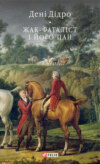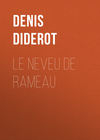Kitabı oku: «Les Bijoux Indiscrets, or, The Indiscreet Toys», sayfa 11
CHAP. XXXIV.
Seventeenth trial of the Ring.
The Comedy
Had the taste of good declamation been known in Congo, there were some comedians who might well be spared. Of thirty persons which composed the band, there was but one great actor, and two tolerable actresses. The genius of authors was obliged to comply with the mediocrity of the greatest number; and there was no room to hope, that a play would be performed with any tolerable success, without taking care to model the characters on the defects of the comedians. This is what was meant in my time by the custom of the stage. Formerly the actors were made for the pieces; but now the pieces were made for the actors. If you offer'd a new play, to be sure it underwent an examination, to know whether the subject was engaging, the intrigue well connected, the characters supported, and the diction pure and flowing: but if there were no parts for Roscius and Amiana, it was refused.
The Kislar Agasi, superintendant of the Sultan's pleasures, had packed a company of players together, as he could find them; and this was the first representation of a new tragedy at the Seraglio. It was composed by a modern author, who had gain'd such reputation, that tho' his piece had been but a string of impertinences, it would assuredly have met with a favorable reception. But he did not debase his character. His work was well written, his scenes conducted with art, his incidents managed with dexterity, the interest went on increasing, and the passions in being developed. The acts, naturally link'd together, and full, constantly held the audience in suspence with regard to the sequel, and satisfied with what was past: and they were got to the fourth act of this master-piece, to a very moving scene, which was a preparation to another still more interesting; when Mangogul, in order to save himself from the ridicule of listening to the tender parts, pull'd out his glass, and acting the inattentive, surveyed the several boxes. In the front box he observed a woman in great emotion, but of an ill-timed sort, as having no relation to the piece. His ring was instantly levelled at her, and in the midst of most pathetic commendations, a Toy, panting for breath, was heard addressing the player in these terms:
"Ah! – Ah! – Pray stop, Orgogli; – you melt me excessively – Ah! – Ah! – There's no bearing it. – "
The audience listened, and look'd towards the place whence the voice proceeded: and the word ran thro' the pit, that it was a Toy that made the speech. "Which Toy," says one, "and what has it said?" And without waiting for an answer, there was a general clap and cry: Encore, encore. The author, who was behind the scenes, fearing that this unlucky accident might interrupt the representation of his piece, foamed with rage, and gave the whole race of Toys to Belzebub. The noise was great and lasting; and had it not been for the respect due to the Sultan, the play would have stop'd short at this incident: but Mangogul made a sign for silence; the actors resumed their parts, and went thro' the play.
The Sultan, curious to know the consequences of so public a declaration, caused the Toy that made it, to be observed. Word was soon brought him, that the player was to go from the stage to Eriphila's house. He prevented him, thanks to the power of his ring, and was in this lady's appartment when Orgogli sent in his name.
Eriphila was under arms, that is, in an amorous deshabillé, and wantonly stretch'd on a couch. The comedian entered with a solemn, haughty, insipid air of a conqueror. With the left hand he waved a plain hat with a white feather in it, and caressed his nostrils and upper lip with the tops of the fingers of his right hand, a very theatrical gesture, which was admired by Connoisseurs. His bow was cavalier, and his compliment familiar. "Oh! my queen," cried he, in an affected tone, stooping to Eriphila, "what a trim you are in! But do you know that in that careless garb you are adorable. – "
The tone of this scoundrel shock'd Mangogul. The prince was young, and might possibly be ignorant of certain customs – "Then you like me, my dear," answered Eriphila. "To ravishment, I tell you." – "That gives me great joy. I wish you would repeat that passage which raised such emotions in me a while ago. That passage – there – yes – it is that same – How seducing a rogue he is? – But go on; that moves me strangely."
In pronouncing these words, Eriphila darted such glances on her hero, as bespoke every thing, and stretch'd out her hand to him, which the impertinent Orgogli kissed by way of acquittance. Prouder of his talent than of his conquest, he declaimed with emphasis, and the lady was so enraptur'd, that one minute she conjur'd him to continue, and the next to stop. Mangogul judging by her looks, that her Toy would willingly play its part in this rehearsal, chose rather to guess at the rest of the scene, than to be present at it. He disappear'd, and return'd to the favorite, who expected him.
On the recital which the Sultan made her of this adventure, – "Prince, what do you say?" cried she. "Then the women are fallen into the lowest degree of meanness! A comedian, the slave of the public! A buffoon! Well, if those folks had nothing against them but their state of life: but most of them have neither morals nor sentiments; and even among them, that Orgogli is but a machine. He has never thought, and if he had not learn'd some parts in plays, perhaps he would never have spoken. – "
"Delight of my heart," replied Mangogul, "you run into lamentations without considering the matter sufficiently. Then have you forgot Haria's pack? By Jove, a comedian, I think, is as good as a pug-dog."
"You say right, prince," resumed the favorite. "I am a fool for interesting myself for creatures that do not deserve it. Let Palabria idolize her boobies! Let Salica have her vapors treated by Farfadi in her own way! Let Haria live and dye among her dogs! Let Eriphila abandon herself to all the buffoons of Congo! What is all this to me? I only risque a castle thereby. Nay, I perceive that I must have no thoughts of it, and I have taken my resolution accordingly."
"Farewell then the little monkey," says Mangogul.
"Farewell the little monkey," replies Mirzoza; "and the good opinion which I had conceived of my sex; I believe I shall never resume it. Prince, you will allow me not to suffer a women to enter these doors this fortnight at least."
"But you must have some company," added the Sultan.
"I shall enjoy your company, or please myself in expecting it," replied the favourite: "and if any moments remain on my hands, I shall dispose of them in favor of Ricaric and Selim, who are attached to me, and whose conversation I love. When I happen to be tired of the erudition of my lecturer, your courtier will divert me with the adventures of his youth."
CHAP. XXXV.
Conversation on literature
The favorite loved men of genius, without pretending to be a genius herself. On her toilette, among jewels and other female ornaments, the novels and pamphlets of the time were to be met with, and she talk'd of them wonderfully well. From a Cavagnol and Biribi she passed with ease and propriety to the course of an academician, or other learned man: and every body confessed, that the natural delicacy of her understanding made her discover beauties or defects in those several works, which had sometimes escaped their lucubrations. Mirzoza astonished them by her penetration, embarrassed them by her questions; but never abused the advantages which her wit and beauty gave her: and people were not sorry for being detected in the wrong by her. Towards the close of an evening, which she had passed with Mangogul, Selim came, and she sent for Ricaric. The African author has reserved Selim's character for another place: but he informs us here, that Ricaric was a member of the academy of Congo; that his erudition had not hindered him from being a man of wit; that he had acquired a profound knowledge of former ages; that he had a scrupulous attachment to the ancient rules which he cited eternally; that he was a machine by principles; and that it was impossible to be a more zealous partisan of the first writers of Congo; but more especially of one Miroufla, who, about 3040 years before, had composed a sublime poem in the Caffrian language, on the conquest of a great forest, out of which the Caffres expelled the monkeys, who were in possession of it from time immemorial. Ricaric had translated it into Congese, and published a very beautiful edition of it, illustrated with notes, Scholia, various readings, and all the embellishments of a Benedictine edition. Besides, they had of him two bad tragedies writ according to all the rules, a panegyric on crocodiles, and some opera's.
"I bring you, madam," says Ricaric with a low bow, "a novel, which is ascribed to the marchioness Tamazi; but in which we unluckily discover the hand of Mulhazen, the answer of our president Lambadago to the discourse of the poet Tuxigraphus, which we received yesterday; and the Tamerlan of this last."
"This is admirable!" says Mangogul. "The press goes on incessantly; and if the husbands of Congo performed their duty as well as the writers, in less than ten years I might be enabled to set sixteen hundred thousand men on foot, and promise myself the conquest of Monoémugi. We will read the novel at leisure. Now let us see the harangue, especially that part which relates to me."
Ricaric turn'd it over, and light on this passage. "The ancestors of our august emperor have rendered themselves illustrious without doubt. But Mangogul, greater than they, has prepared quite different subjects of admiration for future ages. What do I say of admiration? Let us speak more accurately; of incredulity. If our ancestors had cause to assert, that posterity would esteem as fables the wonders of Kanaglou's reign; how much more reason have we to think, that our descendants will refuse credit to the prodigies of wisdom and valor, of which we are witnesses?"
"My poor Mr. Lambadago," says the Sultan, "you are but retailer of phrases. What I have reason to believe, is that your successors will one day eclipse my glory by that of my son, as you make my father's vanish before mine; and so on, as long as there will be one academician left. What think you, Mr. Ricaric?"
"Prince, all that I can say," answered Ricaric, "is, that the passage which I have read to your highness, was extremely relished by the public."
"So much the worse," replied Mangogul. "Then the true taste of eloquence is lost in Congo? It was not thus that the sublime Homilogo praised the great Aben."
"Prince," said Ricaric, "true eloquence is nothing but the art of speaking in a noble, and at the same time agreeable and perswasive manner."
"Add, and sensible," continued the Sultan, "and upon this principle judge your friend Lambadago. With all the respect that I have for modern eloquence, he is but a false declaimer."
"But, prince," answered Ricaric, "without passing the bounds of that, which I owe your highness, will you permit me – "
"What I give you full permission to do," replied Mangogul smartly, "is to respect good sense beyond my highness, and to tell me sincerely, if an eloquent man can ever dispense himself from shewing some signs of it."
"No, prince," answered Ricaric, and he was going to string up a long bead-roll of authorities, and cite all the rhetoricians of Afric, the two Arabia's, and China, in order to prove the most incontestable thing in the world, when he was interrupted by Selim.
"All your authors," said the courtier, "will never prove that Lambadago is not a very awkward and indecent haranguer. Pray, Mr. Ricaric, excuse these expressions. I honour you in a singular manner; but indeed, laying aside the prejudice of confraternity, can you avoid allowing with us, that, as the Sultan now reigning is just, amiable, beneficent, and a great warrior, he does not stand in need of the embroidery of your rhetoricians, to be as great as his ancestors; and that a son, who is exalted by depressing his father and grandfather, would be very ridiculously vain, if he were not sensible, that in embellishing him with one hand, he is disfigured by the other. In order to prove that Mangogul is as well-made a man as any of his predecessors, do you think it necessary to knock off the heads of the statues of Erguebzed and Kanaglou?"
"Mr. Ricaric," says Mirzoza, "Selim is in the right. Let every one enjoy what belongs to him, and let us not make the public suspect, that our panegyrics are a sort of robberies committed on the memory of our fathers: declare this from me in the next full meeting of the academy."
"People are too long in possession of this custom," replied Selim, "to expect any benefit from this advice."
"I believe, Sir, that you are mistaken," said Ricaric to Selim. "The academy is still the sanctuary of good taste; and its best times do not afford us either philosophers or poets, whom we cannot match at this day. Our stage has passed, and may still pass for the first stage of Africa. Oh! what a work is the Tamerlane of Tuxigraphus! 'Tis the pathetic of Eurisope, and the loftiness of Azopha. 'Tis antiquity quite pure."
"I saw," said the favorite, "the first representation of Tamerlane; and join with you in thinking the work well conducted, the dialogue elegant, and the propriety of characters well observed."
"What difference, madam," interrupted Ricaric, "between such an author as Tuxigraphus, fatted with the perusal of the ancients, and most part of our moderns."
"Yet these moderns," said Selim, "whom you demolish here at your ease, are not so contemptible as you pretend. What, don't you find genius, invention, fire, details, characters, and fine strokes of wit in them? And of what importance are rules to me, provided a writer pleases me? Certainly it is neither the observations of the wise Almudir and the learned Abaldok, nor the art of poetry of the deep-read Facardin, which I have never perused, that makes me admire the pieces of Aboulcazem, Muhardar, Albaboukre, and many other Sarracens! Is there any other rule but the imitation of nature; and have we not as good eyes as those who studied her?"
"Nature," answered Ricaric, "presents us with different faces every instant. They are all true, but all are not equally beautiful. It is in these works, on which you seem not to set any great value, that we should learn to choose. They are collections of their own experiments, and also of those which had been made before them. Whatever strength of understanding a person may have, things must be observed successively; and one man cannot hope to see in the short course of his life, all that had been discovered to his time. Otherwise we may assert, that any one science might owe its birth, progress, and utmost perfection to one head: which is contrary to experience."
"Mr. Ricaric," replied Selim, "the only consequence that I can draw from your argument is, that as the moderns are in possession of treasures amassed up to their times, they must be richer than the ancients; or, if this comparison displeases you, that as they are raised on the shoulders of those giants, they ought to see farther than them. And in fact, what is their natural philosophy, their astronomy, their navigation, their mechanics, their calculations, in comparison of ours? And why may not our eloquence and poesy have the superiority likewise?"
"Selim," said the Sultana, "Ricaric will, at some proper time, give you the reasons of this difference. He will tell you why our tragedy is inferior to that of the ancients: for my part, I willingly undertake to shew you, that it is so. I will not accuse you," continued she, "of not having read the ancients. Your mind is too well adorned, to be ignorant of their stage. Now, abstracting from certain notions relative to their customs, manners and religion, which shock you purely because circumstances are changed; you will allow that their subjects are noble, well-chosen, and interesting; that the action naturally develops itself; that their dialogue is simple, and very near nature; that the unravelling of their plot is not strained; that the interest is not divided, nor the action overloaded with episodes. Transport yourself in idea to the isle of Alindala; examine every thing that passes there; attend to all that is said, from the moment that young Ibrahim and the crafty Forfanti landed thereon: approach the cave of the wretched Polipsile; lose not a word of her complaints; and then tell me, if any one circumstance draws you out of the illusion. Name me a modern piece that can bear the same examination, and pretend to the same degree of perfection; and I grant you the victory."
"By Brama," cried the Sultan, yawning, "madam has made an academical dissertation."
"I do not understand the rules," continued the favorite; "and much less the learned words, in which they are expressed: but I know that nothing but the True can please and touch. I also know that the perfection of a dramatic piece consists in the exact imitation of an action, so that the spectator, continually deceived, imagines he is present at the very action. Now, pray, is there any thing like this in the tragedies which you extol to us?
"Do you admire the manner in which they are conducted? It is generally so complicated, that it must be a miracle, that so many things should happen in so little time. The ruin or preservation of an empire, the marriage of a princess, the loss of a prince; all this is done with the turn of a hand. Is the subject a conspiracy? It is sketch'd out in the first act; it is connected and strengthened in the second; all the measures are taken, the obstacles removed, the conspirators are quite ready for action in the third; immediately there shall be a revolt, an engagement, perhaps a pitch'd battle; and you will call this conduct, interest, fire, verisimilitude: I can never excuse it, in you especially, who are not ignorant, what it sometimes costs to put an end to a pitiful intrigue; and how much time the smallest political affair absorbs in taking measures, in previous meetings, and in deliberations."
"I grant, madam," answered Selim, "that our pieces are a little overcharged; but it is a necessary evil: without the assistance of episodes, the audience would be chill'd."
"That is to say, that in order to give spirit to the representation of a fact, it must be made such as it neither is, nor ought to be. This is ridiculous in the highest degree; unless it be still more absurd to make the violins play up rigadoons and country-dances, while the audience are in deep concern for a prince, who is on the point of losing his mistress, his throne and his life."
"Madam, you are are in the right," said Mangogul: "the music should be mournful on those occasions; and I go to order you some of that kind." Mangogul rose up, went out, and the conversation was continued between Selim, Ricaric, and the favorite.
"At least, madam," replied Selim, "you will not deny, that if the episodes draw us out of the illusion, the dialogue leads us back into it. I see none who understand it like our tragic writers."
"Then, nobody understands it," resumed Mirzoza. "The emphasis, wit and affected decorations, which predominate in it, are a thousand leagues distant from nature. In vain does the author endeavour to conceal himself, my eyes are penetrating and I discover him incessantly behind the persons of the drama. Cinna, Sertorius, Maximus, and Æmilius, are Corneille's speaking trumpets in almost every page. This is not the way that people converse in our ancient Sarracen authors. Ricaric will, if you desire it, translate you some scenes out of them; and then you will hear pure nature speaking by their mouths. I could willingly say to the moderns: 'Gentlemen, instead of dealing out wit to your personages on every occasion, put them into such circumstances as must inspire them with some.'"
"After what madam has declared on the management and the dialogue of our drama's; there is no great probability," says Selim; "that she will shew indulgence to the plots."
"No certainly," replied the favorite: "there are a hundred bad for one good. This is not brought on properly, that is quite miraculous. Is an author encumbered with a personage, which he has drag'd from scene to scene thro' five acts, he dispatches him with a stab of a ponyard: every body falls to crying, and I burst into laughter. Besides, did mortals ever speak as we declaim? Do kings and princes walk otherwise than a well-bred man? Have they ever gesticulated like persons possessed or raging mad? Do princesses speak in a shrill squeaking tone? It is generally supposed that we have carried tragedy to a high degree of perfection; and I on the contrary think it is next to demonstration, that of all the kinds of literary works, to which the Africans have applied themselves in these latter ages, this is the most imperfect."
The favorite was advanced thus far in her sally against our theatrical pieces, when Mangogul returned. "Madam," said he, "you will oblige me in continuing. You see I have a secret to abridge a poetical subject, when I find it tedious."
"I suppose," continued the favorite, "a person just arrived from Angola, who had never heard a play mentioned, but otherwise does not want good sense and breeding, has some acquaintance with the courts of princes, the intrigues of courtiers, the jealousies of ministers, and the double dealings of women; to whom I say in confidence 'My friend, there are terrible commotions actually in the Seraglio. The prince, dissatisfied with his son, in whom he suspects a passion for the Manimonbanda, is a man capable of taking the most cruel vengeance of them both. This adventure will, in all probability, be attended with dismal consequences. If you choose it, I will make you an eye-witness of all that passes.' He accepts my offer, and I carry him into a box screen'd by a blind, from whence he sees the stage, which he takes for the Sultan's palace, Do you believe, notwithstanding the serious air I put on, that this person's illusion can last a moment? Will you not rather agree with me, that the stiff-affected carriage of the actors, the oddity of their dress, the extravagance of their gestures, the emphasis of a singular language in rhyme and cadence, and a thousand other shocking dissonances, must make him laugh in my face before the first scene is over, and tell me either that I make game of him, or that the prince and all his court are mad."
"I own," said Selim, "that this supposition strikes me: but may I not observe to you, that people go to the play-house, fully perswaded that they are to see the imitation of an event, and not the event itself."
"And ought that perswasion," replied Mirzoza, "to hinder the players from representing the event in the most natural manner?"
"All this means, madam," interrupted Mangogul, "that you put yourself at the head of the censors."
"And if your opinion be received," continued Selim, "the empire is threatened with the decay of good taste; barbarism will revive, and we are in danger of relapsing into the ignorance of the ages of Mamurrha and Orondado."
"My lord, pray have no such apprehensions. I hate peevish humors, and will not add to their number. Besides, I have the glory of his highness too much at heart, to think of ever attempting to tarnish the splendor of his reign. But if credit were given to us, is it not true, Mr. Ricaric, that literature would shine with greater lustre?"
"How," said Mangogul, "have you not a memorial on this subject to present to my Seneschal?"
"No, sir," answered Ricaric; "but after having thanked your highness in behalf of the Literati, for the new inspector, which you have given them; I would most humbly remonstrate to your Seneschal, that the choice of learned men appointed to revise manuscripts is an affair of great nicety: that this trust is committed to persons, who seem to me very much inferior to their employ; and from thence results a crowd of evil effects, such as curtailing good works, cramping the best genius's, who not being at liberty to write in their own way, either write not at all, or send their productions with considerable sums to foreigners; giving a bad opinion of those topicks which are prohibited to be discussed, and a thousand other inconveniencies, which it would be too tedious to mention to your highness. I would advise him to retrench the pensions of certain literary leaches, who are always craving unmercifully; I mean glossators, antiquaries, commentators, and others of this stamp, who would be very useful, if they did their business well; but who are got into the wretched custom of passing over obscure places, and of dwelling upon passages that admit of no difficulty. I would have him be very attentive to suppress almost all posthumous works; and not to suffer the memory of a great author to be tarnished by the covetousness of a bookseller, who collects and publishes, a long time after a man's death, such works as he had condemned to oblivion in his lifetime." "And I," continued the favorite, "would point out to him a small number of men of distinguished merit, such as Mr. Ricaric, on whom he may bestow your benefactions. Is it not somewhat surprising, that the poor man has no provision made for him, while the precious chiromancer of the Manimonbanda receives a thousand sequins a year from your treasury."
"Well, madam,", answered Mangogul, "I assign Mr. Ricaric the like sum on my coffers, in consideration of the wonderful things you tell me of him."
"Mr. Ricaric," said the favorite, "I also must do something for you: in your favor I sacrifice the small resentment of my self-love; and in consideration of the recompence which Mangogul has granted to your merit, I forget the injury he has done me."
"Pray, madam, may I ask you what that injury is?" replied Mangogul.
"You may, Sir, and I will tell you. You yourself make us embark in a conversation on the Belles-Lettres: you begin by a piece of modern eloquence, which is not extraordinary; and when, to oblige you, we prepare to pursue the disagreeable argument which you have started, you are seized with uneasiness and yawning, you teize yourself in your seat, you change your posture a hundred times, without finding one easy one: tired in fine of keeping your countenance, tho' a sad one, you come to a sudden resolution, you get up and disappear: and then, whither do you go? Perhaps to give ear to a Toy!"
"I own the fact, madam, but I see nothing in it that should give offence. If a man happens to be disgusted at fine things, and amuse himself with hearing bad, so much the worse for him. This unjust preference takes nothing from the merit of what he has quitted: he only declares himself a bad judge. To this I could add, madam, that while you were labouring hard at Selim's conversion, I was working with no better success to procure you a castle. In fine, if I must be culpable, since you have pronounc'd me so, I can assure you that you have had your revenge at the very time."
"Pray, how that?" said the favorite. "Thus it is," answered the Sultan. "In order to refresh myself from the fatigue of the academical sitting which I had undergone, I went to examine some Toys." – "Well, prince" – "Well, I never heard such insipid creatures as the two which I light upon." – "This gives me the highest joy," replied the favorite. – They both fell to talking an unintelligible language. I have perfectly well retained every thing they said; but let me die, if I understand a word of it.









